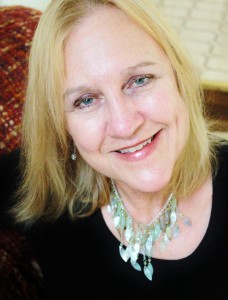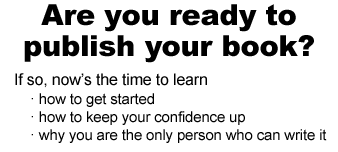 [It’s my pleasure to welcome Susan G.Weidener as guest blogger today. Her post is part of a blog tour through WOW! Women on Writing.]
[It’s my pleasure to welcome Susan G.Weidener as guest blogger today. Her post is part of a blog tour through WOW! Women on Writing.]
As writers we’re putting ourselves out there. We’re being judged all the time. The lofty perch is that place where the critics reside. They decide which books are “worthy” and which aren’t. It’s the college classroom where professors tell you “what works” and what doesn’t when it comes to writing. It’s the newsroom where someone gets promoted because ‘so and so’ decided this reporter fit a certain mold better than you. It’s those who put down any form of publishing other than the traditional one.
Mostly, though, the writer is her own worst judge and jury . . . whispering . . . what you’ve written isn’t worth anything . . . it isn’t good enough.
My advice: Don’t subscribe to the view that there are only a few lofty perches out there and they’re off limits to you.
No two artists or writers will present a subject the same way and some will take risks with their work. Honoring your vision and motivating yourself to try something new – a different way of telling a story, for example, is what I wanted to achieve in A Portrait of Love and Honor.
I’m pleased when readers give me good reviews. It’s validation of a sort, although a writer can’t live on accolades. Support in the form of a well-written and thoughtful review is inspiring . . . but the confidence a writer needs to move forward has to come from within.
Here’s another thought . . . there’s nothing particularly new about the struggle women historically have had with perfectionism. We talk about this in the Women’s Writing Circle, a group I started to support and engage women to tell and share their stories. Dozens of scholarly articles have been written about the quest for perfectionism.
Lean In by Sheryl Sandberg served as a kind of rallying cry to encourage women to ditch the impossible standards, empower themselves and honor their authentic selves, goals and ideals for living a meaningful life. In terms of writing – it’s important not to concentrate or focus on impossible standards or criteria devised, designed or subscribed to by those with an agenda, political, personal or otherwise.
- Realize the difference between perfection and perfecting something. There is a reason why Navajo weavers purposefully weave a mistake into their work – only God is perfect. (There is no “perfect” pen, no “perfect” desk, no “perfect” manuscript.)
- Honor your voice, your authenticity as a writer who has a unique message and story to tell.
- Take action. Set your intentions by practicing balance and boundaries.
- Commit to writing each day.
- Get rid of the competition inside and outside your head.
- Don’t wallow in negative thoughts or comparisons with other authors.
- Enjoy touting and marketing your work.
- Find a writing group that validates and restores you.
- Believe that you have what it takes to be successful.
How do we move forward with our work?
- When we feel carefree, it opens our creative muse. Be receptive to a willingness to play with words and imagination.
- If the writing isn’t going well or fast, don’t panic.
- If you decide to publish, find a way, however you can.
- Recognize and accept that it’s normal to feel nervous about how your work is received.
- Believe that if you tell a meaningful and truthful story, an audience will read and enjoy your book.
The gifts of writing are abundant. Celebrate and move forward. Allow your own creative wisdom, expression and voice to guide you. Forget the lofty perch and write.
Newly-divorced and on her own, 40-something Ava Stuart forges a new life. One day, at a signing in the local library for her novel, a tall, dark-haired man walks in and stands in the back of the room. Jay Scioli is a wanderer – a man who has said good-bye to innocence, the U. S. Army, and corporate America. His outlook on life having changed, his health shattered by illness, he writes a memoir. In his isolation, he searches for an editor to help him pick up the loose ends. Time may be running out. He is drawn to the striking and successful Ava. Facing one setback after another, their love embraces friendship, crisis, dignity, disillusionment. Their love story reflects a reason for living in the face of life’s unexpected events.
Based on a true story, A Portrait of Love and Honor: A Novel Based on a True Story takes the reader from the halls of the United States Military Academy at West Point during the Vietnam War to a moving love story between two people destined to meet.
How to Contact Susan
Her website is: www.susanweidener.com.
Facebook: https://www.facebook.com/susan.weidener
Twitter: @Sweideheart
Amazon Author Page: http://www.amazon.com/Susan-G.-Weidener/e/B004G7AXQY/ref=sr_ntt_srch_lnk_4?qid=1438829053&sr=1-4
Amazon: A Portrait of Love and Honor: A Novel Based on a True Story











Thank you, Flora, for hosting me on your lovely and informative website. I appreciate and can identify with your slogan – “Be an adventurer, not a tourist.” Here, here! The same can be said of writing. It’s an honor to be able to share with your readers. With gratitude – Susan
Susan, your post struck a responsive chord. It was my pleasure to host you and inspire readers to have courage to share their stories and messages with the world now.
Susan, A post with a lot of meat in it. I’m having all these last-minute jitters about my book not being good enough, not well written, even though it’s been line edited, content edited, copyedited, and proofread. For the same reason, still don’t have more than a temporary website set up. The awful thing is that I’ve been in this position before–pulled one book back on the eve of publication. Dropped another after it was accepted by a small press. Have wasted years or indeed, decades, perfecting books. I’ve not written a blog post in years because why bother when many others have better posts? So your advice to “realize the difference between perfecting something and perfection” is spot on and what I need right now.
Penelope, you are in good company. We can all relate to some if not all of your dilemmas. The greatest benefit of the digital age is being able to get content out faster and being able to make changes later if we wish. The worst thing we can do is leave our stories untold. I believe somewhere in the world someone is waiting to hear your story/message/solution exactly the way you (and only you) can tell it. It’s a shame to disappoint them.
Penelope, Never fear. You are not alone. And nothing – and no one – is perfect. Believe in your project with your heart and soul. That’s half the battle. And, like Flora said, know there is someone out there who is longing to hear your story. On a more practical level – remember, too, The Great Gatsby was a ‘dud’ when released. Hardly anyone bought it! It was only after Fitzgerald was dead that the book became iconic.
Susan, thanks for bringing this into sharper perspective. Let’s hope we get to enjoy satisfying book sales before we transition to the other side.
Dear Susan and Flora, I love these practical tips about honorong our stories, keeping it all in perspective and enjoying the ride. Thank you both.
Hi Kathy, glad you enjoyed these tips. We must be reminded of the worth of our stories and the importance of keeping it all in perspective.